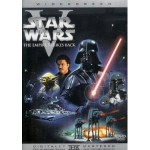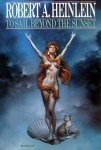I grew up without a television and in a tiny little wheatbelt town that didn’t have any kids my own age in it — there were only five houses and the one other house that had kids, the kids were all boys.
So I read. A lot.
Keeping this list to just five major influencers over my life is going to be a major challenge. These are in no particular order.
Mary Stewart



 Mary Stewart is primarily known for her Merlin series, which is how I came to know her. I picked up the Crystal Cave in hardcover from my high school library, and then The Hollow Hills. The last two books hadn’t been written then. But I fell in love with history and Ancient/Roman Britain because of Mary Stewart’s portrayal. She stripped the Arthurian legend of all mysticism and presented it as a series of real, historical events, and the characters as real people with real emotions and motivations.
Mary Stewart is primarily known for her Merlin series, which is how I came to know her. I picked up the Crystal Cave in hardcover from my high school library, and then The Hollow Hills. The last two books hadn’t been written then. But I fell in love with history and Ancient/Roman Britain because of Mary Stewart’s portrayal. She stripped the Arthurian legend of all mysticism and presented it as a series of real, historical events, and the characters as real people with real emotions and motivations.
Because of Mary Stewart I was utterly hooked on history, all things ancient, Roman Britain, Arthur, and the formation of Anglo-Saxon England (i.e., the invasion of the Vikings). Her interpretation of the few facts that remain from that period have completely coloured my perceptions of the period and you can find traces of that bias in my own stories.
George Lucas
 George Lucas is technically a writer — he wrote the screenplays for the first two movies. He’s credited with writing the book for the first movie, but it has been generally acknowledged now that the book was ghost-written by Alan Dean Foster, based off Lucas’ script.
George Lucas is technically a writer — he wrote the screenplays for the first two movies. He’s credited with writing the book for the first movie, but it has been generally acknowledged now that the book was ghost-written by Alan Dean Foster, based off Lucas’ script.
I consider a screenwriter a writer, and for the sake of this exercise, George Lucas is one of the single-most influential writers on my life for two reasons. (1) he’s the reason I started writing in the first place and (2) he’s the reason I write romances.
Which probably doesn’t seem to make sense on the surface, as he produced six of the most non-romantic, escapist science fiction movies of the latter third of the 20th century. But that’s exactly the point. They were escapist, soap opera romances, in the old fashioned sense of the word “romance” — where a romance was simply the opposite to a tragedy, where everything ended happily despite overwhelming odds stacked against the hero(es).
And yes, there was a romance in there, too. And that single moment Lucas didn’t actually write — Harrison Ford did. In the second movie of the original trilogy, when Han Solo was about to be put into the carbon freezer and Leia confesses her love, the original script had Han saying “I love you, too.” It was Harrison Ford’s brilliant idea that Han’s more correct response would be “I know.” Oh…and he played it perfectly.
I’ve been trying to capture such heart-stopping, perfectly-in-character romantic moments in my own romances ever since. Thanks a bunch guys.
Here’s the clip of that moment, if you’re curious.
Robert Heinlein

 If I had to put these five into an order, then Heinlein would have come first, simply because of the sheer range of influence he has had on me. I’ve read nearly all his books (he was staggeringly prolific — another major influence he has had on me as a professional writer. I’d love to match his output).
If I had to put these five into an order, then Heinlein would have come first, simply because of the sheer range of influence he has had on me. I’ve read nearly all his books (he was staggeringly prolific — another major influence he has had on me as a professional writer. I’d love to match his output).
The two covers to the left are the two that I love the best out of all his books. Both can leave me weeping at the end, especially Time Enough for Love. Heinlein is classified as a “hard” science fiction writer. I started reading his books when I was in my early teens, and therefore fairly impressionable. He left his mark, and most of my opinions on religion, sex, education, book learning and politics have been touched by him. Heinlein added to my appetite for history, too, which is astonishing when you consider he’s shelved in amongst the SF crowd.
Most importantly, he gave me a taste for thoughtful time travel – time travel that has consequences and where the Theory of Relativity isn’t overthrown for the sake of convenience or love.
The last influence he left on me is somewhat negative: Awe. Because of Heinlein and a handful of his peers, I am completely cowed at the idea of tackling a serious science fiction novel.
JRR Tolkein
 I was late in catching up with The Lord of the Rings. It seemed that everyone else knew about the book before I did. I caught a friend of mine reading it at high school, and asked her about it. It was her private copy, but she showed me where the copy was in the school library and I checked it out.
I was late in catching up with The Lord of the Rings. It seemed that everyone else knew about the book before I did. I caught a friend of mine reading it at high school, and asked her about it. It was her private copy, but she showed me where the copy was in the school library and I checked it out.
Within two chapters I was utterly hooked. I knew the story. It was familiar to me. I don’t know if a primary school teacher had read chapters to me before, or if we had read extracts when I was much younger, but there was such a strong sense of recognition I nearly wept with it. It was like a homecoming. I think I inhaled the entire three-book one-volume (plus appendices) in three days, going seriously short on sleep and reading during classes.
I have attempted to read other fantasy epics since then and all of them have paled in comparison. Faint copies at best, in my opinion.
I continued to read Lord of the Rings about once every year up until the movies came out. Now I try to watch the extended movies once a year, around Christmas time.
JRR Tolkein opened my mind up to the possibilities of old-fashioned story telling that involved strong character stuff like values: valor, courage, integrety — when the world was getting all trendy and self-conscious and trying very hard to be cool and hip. And, of course, Tolkien taught everyone major lessons about world building.
Dr. Wayne W. Dyer
 I saw this book cover floating around for years before I picked it up. I mistakenly believed — as I’m sure many others did — that it was a sex manual. I didn’t read the title properly, and Wayne Dyer’s grin (this is the original 1970’s cover) certainly didn’t help correct the impression.
I saw this book cover floating around for years before I picked it up. I mistakenly believed — as I’m sure many others did — that it was a sex manual. I didn’t read the title properly, and Wayne Dyer’s grin (this is the original 1970’s cover) certainly didn’t help correct the impression.
I can’t remember now what made me start reading the book. Maybe I read the blurb on the back and realized that it could help me with more than a few of my problems, and took it home.
This was the first self-help book I ever bought. It certainly wasn’t my last, but it made the biggest impact crater on my life and my mind because the concepts were so new and so, well, revolutionary. These days we think nothing of a lot of the positive thinking ideas that get tossed around like popcorn at a movie. But when I first read this book in the eighties, they were mind-blowing.
I’ve acquired a good many more of Dyer’s books since then, along with a few other neur0-linguistic and positive thinking gurus. I always tend to come back to Dyer, because he keeps God (the Christian deity) out of it, and his logic always holds up. I can’t always say that for the others.
It was a direct result of Dyers influence that I had the courage to up stakes and move to Canada when I met Mark on-line in 1996 — one of the best decisions of my life.
___
Honourable mentions:
Frank Herbert – science fiction author. Scale, in story-telling, in scope, in size, in concept, in story scene, in vision.
Desmond Bagley – British thriller writer. Taught me that suspense and thrillers can be both thoughtful and entertaining …and even educational.
Peter O’Donnell – British thriller writer. That women characters can be just as strong a lead as men. And sexy doesn’t have to mean porn.
TH White. Author of The Once And Future King. Taught me the value and beauty of a well-told tragedy.
Stephen King. Point of view is – well – king.
_____________